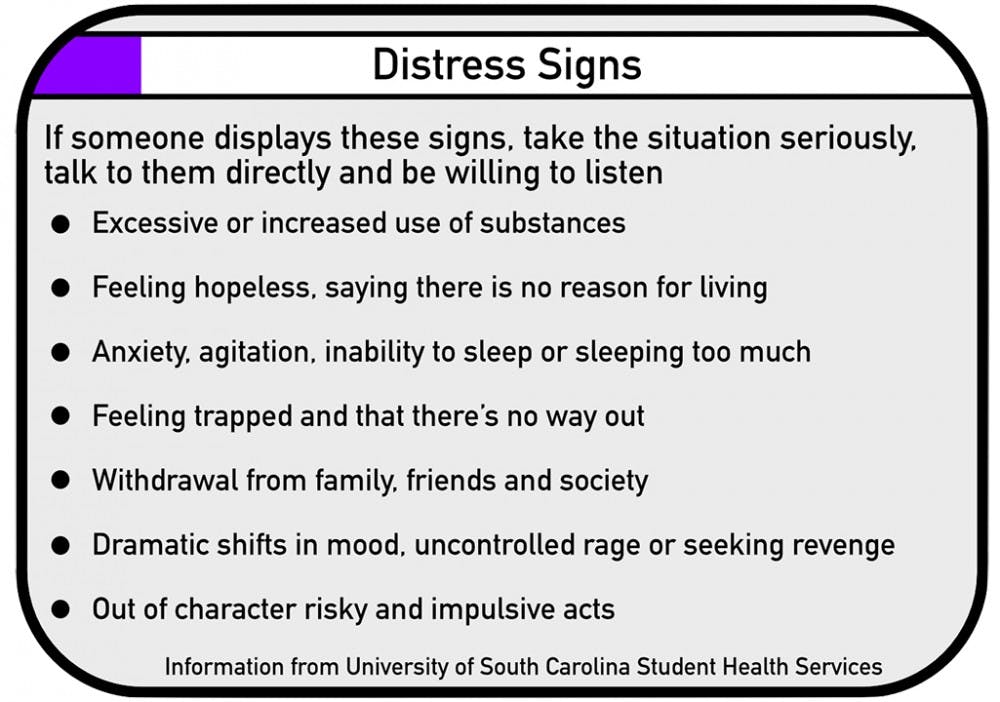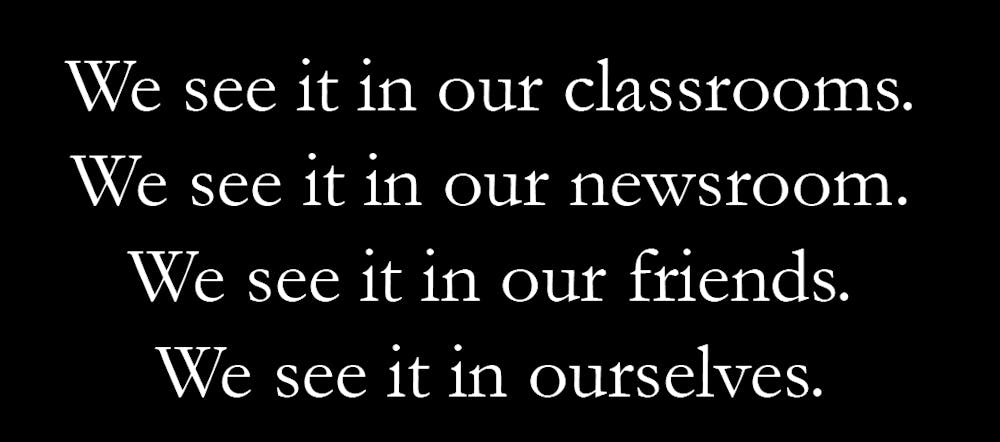We see it in our classrooms. We see it in our newsroom. We see it in our friends. We see it in ourselves.
The battle is ongoing, and it does not discriminate. Many face it alone.
Mental illness affects everyone:
- 49.3% of USC students reported feeling hopeless
- 67.5% reported feeling sad
- 62.4% reported feeling overwhelming anxiety
- 40.8% reported feeling so depressed it was difficult to function
- 1.2% attempted suicide
These stats are according to a presentation from Student Health Services based on spring 2019 survey results.
This means of the 34,795 students on USC's campus, 17,154 students felt hopeless, 23,487 students felt sad, 21,712 experienced overwhelming anxiety and 14,196 felt so depressed it was difficult to function.
And 418 students attempted suicide.
The reality of the statistics show how personal this issue is on college campuses. Recent events in the community have sparked a conversation about this issue that is often infused with stigma and swept under the rug.
With the advocacy work of the Hilinksi family and Student Government’s Stigma Free USC initiative, now more than ever on this campus we are emboldened to have this difficult conversation on what might be the most important issue college students face.
The issue of mental health will be at the forefront of our conversations and reporting in the newsroom.
As reporters and as students, we often ask ourselves, what is the university doing to support students who are struggling? Why doesn’t the university report every suicide? What happens to the people who are left behind? Is Student Health Services reaching those who need it?
We are going to start answering these questions.
Over the course of the semester, we will be reporting on the Resiliency Project, remembering those we have lost and sharing the stories of not only undergraduate students but also graduate students and faculty. We plan to have an in-person conversation with President Bob Calsen about university policies and his plans on this issue.
These are difficult questions that will lead to difficult conversations, but we will continue to seek the answers. It’s important to recognize we can help each other, even when it is uncomfortable.
We are not just having these conversations for our readers but also for ourselves. As student journalists and as student leaders, we face the battle with you. We too must take time to ask ourselves questions regarding our mental health.
Will that tight feeling of anxiety in my chest go away? Is working through meals normal? Does the to-do list ever end? Am I really alone in my position?
The news is 24/7. We are often working in the newsroom until the early hours of the morning, yet we must also attend class, study for midterms and manage a staff of over 150 people.
As leaders we have to remind ourselves to stop and ask, is what we are asking for too much? Can our staffers handle this? Have I taken time for myself recently?
To us, the mental health of our staff takes priority over the news.
Our hope is that our coverage will answer some of the questions you have regarding the issue of mental health and encourage not just a dialogue, but action in the community.
Share your questions with us. Share your stories.
#GMGContinuingtheConversation



